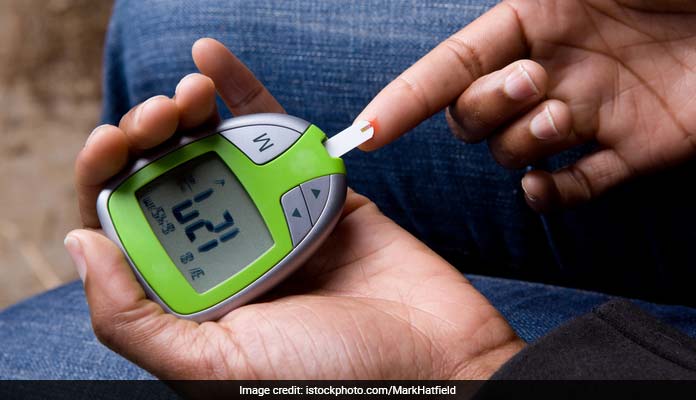According to recent research blood glucose testing does not offer a significant advantage in blood sugar control for type 2 diabetes patients who are not treated with insulin.

Type 2 Diabetes afflicts one in 11 people in the United States
For those treated with insulin, checking blood sugar with a finger stick at home is an accepted practice for monitoring the effects of insulin therapy. However, the majority of type 2 diabetes patients are not treated with insulin. These patients, too, are often recommended glucose monitoring, despite an ongoing debate about its effectiveness in controlling diabetes or improving how patients feel. These patients, too, are often recommended glucose monitoring .Treatment plans don't change based on blood sugar test results. Patients don't change the dosage of their oral diabetes drugs and they don't alter their insulin use (which one-quarter of people with type 2 diabetes are on) because of this. Self-testing also drives up the cost of having diabetes. Although glucose meters are often heavily discounted and, in some cases, provided for free, test strips costs are high, despite costing just pennies to make. Many patients perform the finger-stick blood sugar test several times a day. Even doctors don't pay attention to the finger-stick blood sugar test. Instead, they base treatment decisions on hemoglobin A1C, a test that measures your average blood sugar levels during a six- to eight-week period. If the A1C is going up, therapy is intensified. Conversely, if A1C is falling, medication dosages may be revised downward.
In a landmark study, UNC School of Medicine researchers have shown that blood glucose testing does not offer a significant advantage in blood sugar control for type 2 diabetes patients who are not treated with insulin. The paper, published in JAMA Internal Medicine, details findings from a trial called "The MONITOR Trial." This study is the first large pragmatic study examining glucose monitoring in the United States. "Our study results have the potential to transform current clinical practice for patients and their providers by placing a spotlight on the perennial question, 'to test or not to test'," said Katrina Donahue, Professor at UNC School of Medicine.
During the study, 450 patients were assigned to one of three groups: no blood sugar monitoring, once daily glucose monitoring, or enhanced once-daily glucose monitoring with an internet-delivered tailored message of encouragement or instruction. The trial lasted one year and the results were:
1. No significant differences in blood glucose control across the three groups and in their health-related quality of life
2. No notable differences in hypoglycemia (low blood sugar), hospitalizations, emergency room visits.
3. Between programs, there was also no difference in the number of individuals who had to start using insulin treatment to better control blood sugar levels.
"Of course, patients and providers have to consider each unique situation as they determine whether home blood glucose monitoring is appropriate," Donahue said. "But the study's null results suggest that self-monitoring of blood glucose in non-insulin treated type 2 diabetes has limited utility. For the majority, the costs may outweigh the benefits."
Proponents of blood glucose testing argue that daily testing promotes better awareness of glucose levels, leading to improvements in diet and lifestyle. In the past, a number of smaller clinical trials have shown mixed results in attempting to verify this. Several studies suggested a benefit for testing, while others found no evidence of benefit, or found that testing could even be harmful. Daily testing imposes not only a financial cost, but can also take a mental toll, increasing the rate of depression or anxiety in some patients. "There was no difference between either type of testing," said UNC endocrinologist Laura Young, MD, PhD, the paper's first author. "Enhanced Self-Monitoring Blood Glucose, in the pragmatic setting of regular daily life, offered no additional health benefits."
"There has been a lack of consensus, not just in the United States, but worldwide," added Young. "The lack of standard guidelines makes it all the more difficult for patients, who are already struggling to manage a chronic condition. And at the end of the day, patients have to make a choice."
Patients living with diabetes should discuss the need for blood sugar monitoring with their health care providers. If together a patient and their provider decide that blood sugar monitoring is not necessary, patients could be spared hundreds of finger sticks and save hundreds of dollars every year, at least until insulin treatment is required.
(With inputs from IANS)
Read more on Diabetes
DoctorNDTV is the one stop site for all your health needs providing the most credible health information, health news and tips with expert advice on healthy living, diet plans, informative videos etc. You can get the most relevant and accurate info you need about health problems like diabetes, cancer, pregnancy, HIV and AIDS, weight loss and many other lifestyle diseases. We have a panel of over 350 experts who help us develop content by giving their valuable inputs and bringing to us the latest in the world of healthcare.














